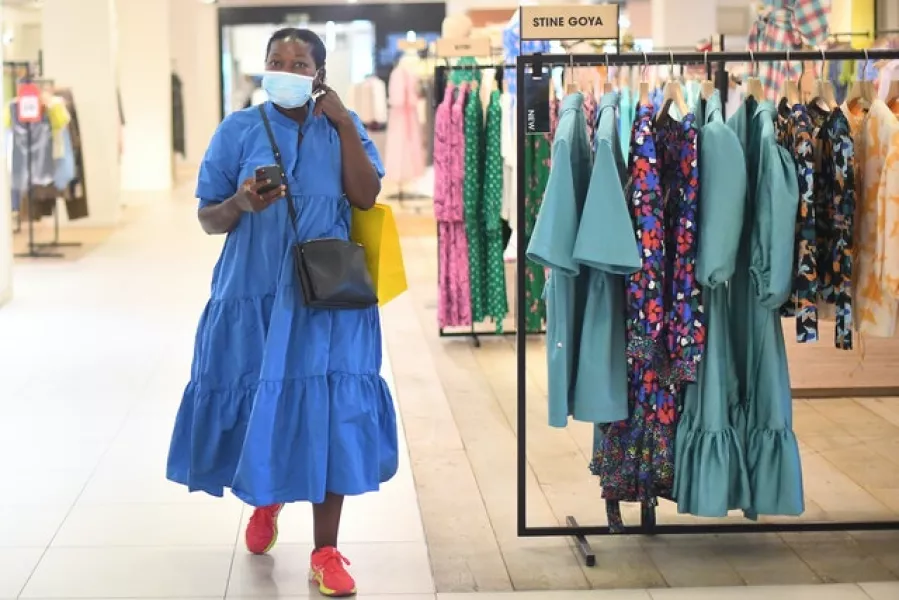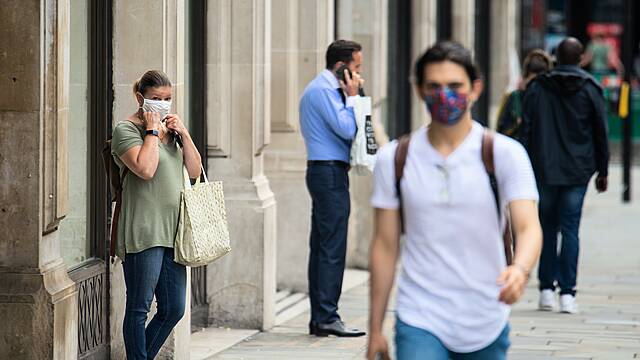Their comments, published in the journal BMJ Analysis, are based on an examination of the scientific evidence available on mask-wearing, in the context of respiratory virus infections.
The researchers say evidence is growing that face coverings can reduce the spread of Sars-CoV-2, the virus that causes Covid-19.
However, they acknowledge the studies they examined are yet to be peer-reviewed and, thus, should be treated with caution.
But the scientists add that based on the limited evidence available, face coverings do not make people care less about the other key measures that the public have been asked to follow to reduce the spread of coronavirus, such as good hand hygiene.
Early in the pandemic, the World Health Organisation warned that covering the face could “create a false sense of security that can lead to neglecting other essential measures such as hand hygiene practices”, a type of behaviour that is based on a theory known as “risk compensation”.
But in June, they changed the guidance, advising people to wear masks in public areas, “in light of evolving evidence”.
Many public health bodies are coming to the conclusion that wearing a face covering might help reduce the spread of Sars-CoV-2, and the limited evidence available suggests their use doesn't have a negative effect on hand hygiene
Last week in England, wearing face coverings in indoor spaces such as shops, shopping centres, banks, takeaway outlets, post offices, sandwich shops and supermarkets, became mandatory.
Dr James Rubin, from the King’s College London’s department of psychological medicine and the paper’s co-author, said: “Many public health bodies are coming to the conclusion that wearing a face covering might help reduce the spread of Sars-CoV-2, and the limited evidence available suggests their use doesn’t have a negative effect on hand hygiene.”
Risk compensation suggests that people adjust their behaviour according to the perceived level of risk, acting more cautiously where they sense greater risk and becoming less careful if they feel more protected.
Experts have wondered whether wearing a mask would make people less cautious about other coronavirus risk-reducing measures.
So a team of researchers led by Professor Dame Theresa Marteau at the University of Cambridge’s Behaviour and Health Research Unit, looked at 22 systematic reviews (which involves examining all available evidence on a topic), assessing the effect of wearing a mask on transmission of respiratory virus infections.

According to the scientists, the results from six experimental studies indicated that wearing masks “does not reduce the frequency of hand washing or hand sanitising”, with two studies showing “self-reported rates of hand washing were higher in the groups wearing masks”.
The team also found three observational studies that showed people tended to shy away from those wearing masks, which according to the researchers, implies “face coverings do not adversely affect physical distancing at least by those surrounding the wearer”.
However, the researchers acknowledged these studies were not designed to assess risk compensation or look at social distancing.
Commenting on the analysis, Dr Nilu Ahmed, a lecturer in social sciences at the University of Bristol, said the findings as encouraging, “showing people don’t compensate for wearing masks by reducing hand washing, and in fact hand washing may increase as a result of the new behaviour”.
She added: “It is hopeful that emphasising the importance of clean hands when putting on, and before and after removing the mask will help to codify these rules as we build face coverings into daily outdoor routines.”
But Robert Dingwall, a professor of sociology at Nottingham Trent University, described the research as a “narrow approach to the study of risk compensation”.
He said: “The authors do us all a service by bringing together a body of work in a convenient form.
“Merely piling up fragile evidence does not, though, necessarily make it any stronger.”







